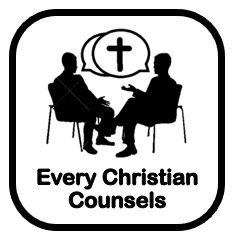Depression Webinar 2 Q&A
| Submitted Questions: What are some instances where Christian counselling in church might be more appropriate and instances where counselling outside of the church setting might be more appropriate (whether the outside counsellor is a Christian or not)? How should we think about care plans e.g. how does the field of psychology compare or fit in with journeying with Christian brothers or sisters through depression? How do I distinguish between clinical depression where I need to seek medical help and just anxiety attack? When should I consider taking medication if I am depressed? How to stay hopeful as a depressed person, how to stop toxic thought patterns, abstain from suicidal thoughts? (this is here as well as in the earlier section on emotions, as questioners may be thinking of how their ailments intrusively affect their hopes and mood |
Broadly speaking, we could consider our conditions in terms of (i) their severity in impairing our ability to perform everyday activities, and (ii) the extent to which the condition is triggered by personal bodily factors, rather than the environment.
The role of medical treatment and secular counselling is probably greater, when the condition is more severe and more triggered by personal bodily factors. Medication and some secular counselling techniques can work quickly to arrest debilitating symptoms, e.g. anti-depressant medication can help to relieve mood during long-term major clinical depression, including where there are no obvious environmental triggers. If you are deeply suicidal, it may also be best to seek secular resources to put off your plans, especially if the local church is not presently equipped to help you do so.
It is not intrinsically wrong to seek medical treatment and secular counselling. If we are physically injured, we would also go to the doctor and undergo physiotherapy if needed. In fact, the Bible teaches us that we are “embodied souls”, so to speak. Ed Welch explains that this means that our bodies can affect our souls and vice versa. Bodies can make us depressed, forgetful or disorganized. The converse is also true sometimes. Our souls, aka our hearts or inner being, can affect our bodies with, yes, stomach aches and depression.
But we can also be aware of the potential downside risks of medication and secular counselling. Some medications will have side effects, which we would want to be aware of and manage. Some secular counselling may also promote an anti-biblical worldview, e.g., by affirming some of our sinful behaviors.
Biblical counselling and other forms of treatment are not mutually exclusive. Rather, we can and should also recognize God’s presence, and the power of His Word, in all cases. Only by hearing His Word, through the Spirit, can our hearts change and grow in a God-centric direction. Oftentimes, we hear Him by reading the Bible, as well as by getting encouragement and counsel from mature Christian brothers and sisters (which can be our CG members, rather than designated counsellors).
We would not want to neglect Him and not hear Him, because we have come to rely instead on medication and secular counselling. Our hopes and goals are not just for a normal- or higher-functioning human being, but for greater Christlikeness.
What we call biblical counselling is best done in the context of our church family. It is designed to be a godly loving environment, where we can help each other remember God, whom is our most powerful long-term healer and the only changer of hearts.
Hence, we can perhaps definitively prioritize biblical counselling when the conditions are, so to speak, less immediately serious in terms of symptoms, and more environmental. This may be cases where people are not so chronically anxious or depressed, and where the triggers are more clearly environmental (e.g., a threatening or sad office situation). Since the situation is less severe in a sense, we can recognize instead the great opportunity for godly growth – facilitated by mature members of the church, as we rely on Him and His Word.
